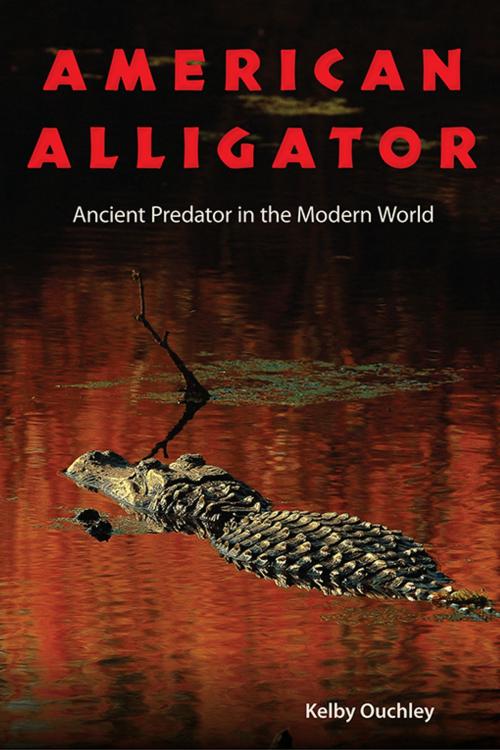American Alligator
Ancient Predator in the Modern World
Nonfiction, Science & Nature, Nature, Reptiles & Amphibians| Author: | Kelby Ouchley | ISBN: | 9780813047768 |
| Publisher: | University Press of Florida | Publication: | October 1, 2013 |
| Imprint: | University Press of Florida | Language: | English |
| Author: | Kelby Ouchley |
| ISBN: | 9780813047768 |
| Publisher: | University Press of Florida |
| Publication: | October 1, 2013 |
| Imprint: | University Press of Florida |
| Language: | English |
Having survived since the Mesozoic era, alligators teetered on the brink of extinction in the 1960s. Their recovery in the 1970s was largely due to legislative intervention, and today populations are closely monitored throughout their range. American Alligator is the most up-to-date and comprehensive treatment of this resilient relic, a creature with a brain weighing less than half an ounce that has successfully adapted to a changing Earth for more than 200 million years.
Kelby Ouchley chronicles the evolution of A. mississippiensis from "shieldcroc"--the last common ancestor of modern-day alligators, crocodiles, caimans, and gavials--to its current role as keystone of the ecological health of America's southern swamps and marshes. In Florida, the apex predator uses its snout and feet to clear muck from holes in the limestone bedrock. During the dry season, these small ponds or "alligator holes" provide refuge, food, and water for a variety of wildlife. In Louisiana, millions of dollars are spent on the bounty of the non-native nutria that overgraze marsh vegetation, but alligators prey on these coastal rodents free of charge.
The loss of the American alligator would be a blow to biodiversity and an ecosystem disruption affecting all levels of the food chain. While the U.S. Fish and Wildlife Service removed it from the endangered species list in 1987 and today regulates the legal trade of the animal and its products, Ouchley cautions us not to forget the lessons learned: human activities, from urban development to energy production, can still threaten the future of the gator and its southern wetland habitat.
Having survived since the Mesozoic era, alligators teetered on the brink of extinction in the 1960s. Their recovery in the 1970s was largely due to legislative intervention, and today populations are closely monitored throughout their range. American Alligator is the most up-to-date and comprehensive treatment of this resilient relic, a creature with a brain weighing less than half an ounce that has successfully adapted to a changing Earth for more than 200 million years.
Kelby Ouchley chronicles the evolution of A. mississippiensis from "shieldcroc"--the last common ancestor of modern-day alligators, crocodiles, caimans, and gavials--to its current role as keystone of the ecological health of America's southern swamps and marshes. In Florida, the apex predator uses its snout and feet to clear muck from holes in the limestone bedrock. During the dry season, these small ponds or "alligator holes" provide refuge, food, and water for a variety of wildlife. In Louisiana, millions of dollars are spent on the bounty of the non-native nutria that overgraze marsh vegetation, but alligators prey on these coastal rodents free of charge.
The loss of the American alligator would be a blow to biodiversity and an ecosystem disruption affecting all levels of the food chain. While the U.S. Fish and Wildlife Service removed it from the endangered species list in 1987 and today regulates the legal trade of the animal and its products, Ouchley cautions us not to forget the lessons learned: human activities, from urban development to energy production, can still threaten the future of the gator and its southern wetland habitat.















